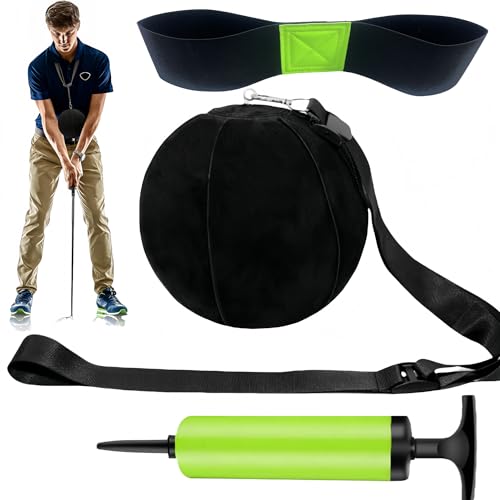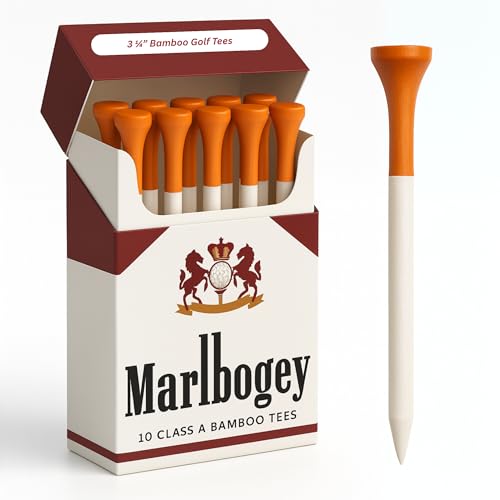Hitting the fairway with precision is crucial, and the right golf ball can make all the difference. You’ve probably wondered if switching up your golf ball could shave strokes off your game. Well, you’re in luck because finding the best golf ball for accuracy is key to leveling up your play.

With a myriad of options, it can be overwhelming to choose. But fear not! Whether you’re a seasoned pro or just getting into the swing of things, there’s a ball out there that’s perfect for your game. Let’s dive into the world of golf balls and find the one that’ll land you closer to the pin every time.
What to Look for in a Golf Ball for Accuracy
When you’re on the hunt for the perfect golf ball to up your accuracy game, there are a few key characteristics you’ll want to keep an eye out for. First and foremost, consider the compression of the ball. This refers to the density of the ball; lower compression balls tend to be softer, making them more forgiving when struck with slower swing speeds. On the other hand, high compression balls are generally favored by golfers with faster swings who are seeking more control.
Ball construction is another crucial factor. Golf balls come in a variety of layers, from two-piece balls designed for distance to multi-layered ones that offer a balance between distance and control. For pinpoint accuracy, you might want to lean towards multi-layer balls; their additional layers provide more spin control on approach shots, allowing you to target the pin with greater precision.
Don’t forget to examine the dimple pattern. Dimples on a golf ball disrupt airflow around the ball, affecting trajectory and stability. A well-designed dimple pattern can result in a steadier ball flight and better performance in windy conditions, both of which are vital for accuracy.
Here’s what you should consider:
- Compression rating suitable for your swing speed
- Multi-layer construction for better spin control
- Dimple pattern that promotes stable flight
Remember, the feel of a golf ball is subjective; what might be right for one golfer may not suit another. You’ll need to strike the right balance between softness for feel and firmness for control. Testing different balls in various conditions will be key. Don’t be afraid to switch it up during practice rounds to find the ball that consistently puts you in the best position to score.
Ball selection can be a journey, but it’s one that can have a significant impact on your game. By focusing on these aspects, you’re setting yourself up for shorter putts and, ultimately, lower scores. Keep experimenting with different brands and models to find the one that feels like an extension of your club—because that’s the ball that’ll make those accurate shots feel like second nature.
Key Features of Accurate Golf Balls
As you delve deeper into the nuances of golf, you’ll realize that choosing the right golf ball is as critical to lowering your scores as mastering the swing. Accurate golf balls have several key features that enable you to hit those straighter shots and find the fairway more often.
Core and Compression
At the heart of golf ball design lies the core. It’s the engine that drives performance. Lower compression cores offer a softer feel, which can be a boon if your swing speed isn’t quite up there with the pros. They can help you gain distance and reduce spin, leading to straighter shots.
| Compression Rating | Swing Speed | Golf Ball Type |
|---|---|---|
| Low (<60) | Slower (< 85mph) | Soft Feel Ball |
| Medium (60-90) | Moderate | Mixed Feel Ball |
| High (>90) | Faster (> 95mph) | Tour-Level Ball |
Outer Layers for Control
While the core provides distance, the layers that wrap around it give you control. Modern golf balls often feature multiple layers, with urethane covers being the choice for pros and low handicappers like yourself. These layers add a dimension of control, especially around the greens, allowing you to attack pins with confidence.
Dimple Design for Stability
The outer surface of the ball is dotted with dimples, which aren’t just for aesthetics. The dimple pattern affects how the air flows around the ball during flight, directly impacting its stability. Optimized dimple designs help to reduce drag and enhance aerodynamics, enabling a more predictable flight path that’s crucial for accuracy.
- Shallow dimples: Enhance distance but may reduce control
- Deep dimples: Increase control, ideal for windy conditions
As you experiment with golf balls fraught with these features, pay attention to how different balls perform in various conditions. Your choice should complement your playing style, whether you’re trying to shape shots or seeking a straighter flight. Remember, golf is a game of personalization and fine-tuning your equipment to your unique needs is a step towards shooting those lower scores.
Top Brands for Accuracy
When you’re on the hunt for golf balls that could help shave strokes off your game, it’s vital to look at brands known for their commitment to accuracy. Titleist, widely renowned for its tour-level golf balls, is a name you’ll come across often. Their Pro V1 and Pro V1x models are particularly noteworthy; they’re designed with a focus on precision and feel, making them a staple for many low handicappers.
Then there’s Bridgestone, a brand that uses meticulous scientific research to engineer balls geared towards accuracy. Their Tour B series has options specifically tailored to improve your control on the course. Whichever swing speed you have, Bridgestone has a ball that’s optimized for your game.
Don’t overlook Callaway, either. Their Chrome Soft line leverages graphene-infused Dual SoftFast cores to give you the kind of control you need in your short game without sacrificing distance. What’s unique about Callaway is their Hex aerodynamics, which helps reduce drag and enhances lift for a stable, penetrating flight.
Here’s a quick rundown of some top models from those brands:
| Brand | Model | Key Feature for Accuracy |
|---|---|---|
| Titleist | Pro V1 | Consistent flight and soft feel |
| Titleist | Pro V1x | High trajectory and spin control |
| Bridgestone | Tour B X | Low driver spin and high precision |
| Callaway | Chrome Soft | Reduced drag and optimal lift |
Lastly, while discussing the elite, let’s not ignore Srixon. Their Z-Star series is perfect for players who prioritize green-side control. What’s impressive about Srixon is their SpinSkin technology, helping you generate more spin where it counts without sacrificing distance on long shots.
Remember, while it’s easy to get caught up in the science and marketing of these top-tier golf balls, you’ll only know if they work for you by testing them out on the course. So grab a sleeve next time you’re at the pro shop and see how they enhance your accuracy on the greens and fairways. After all, the right ball could be the missing link to lowering your scores.
Best Golf Balls for High Handicap Players
When you’re starting out or working to bring down a high handicap, the vast selection of golf balls can seem overwhelming. But rest assured, there are specific balls out there that can help you improve your game. As a seasoned golfer, I’ve seen firsthand the difference the right golf ball can make, especially for those who are just starting to find their swing.

For high handicap players, it’s crucial to find golf balls that offer the right combination of durability, distance, and control. You’ll want a ball that can forgive those off-center hits while still providing the distance to keep you competitive. Here are a few that have gained a reputation for helping high handicappers improve their game:
- Titleist Velocity: Known for its high flight and longer distance, this ball is a solid choice if you’re looking to cover more ground with each stroke.
- Callaway Supersoft: As the name suggests, it’s designed for a softer feel. This can translate to better control, which is key in shaving off those extra strokes.
- Bridgestone e6: Bridgestone has engineered this ball to reduce spin on long shots, which can help you hit it straighter – a must for anyone struggling with slices or hooks.
- Srixon Soft Feel: For the player who wants a nice balance between a soft feel and distance, Srixon offers just that in this ball.
Here’s a quick comparison of these options:
| Brand | Model | Key Feature |
|---|---|---|
| Titleist | Velocity | High flight and distance |
| Callaway | Supersoft | Soft feel and control |
| Bridgestone | e6 | Reduced spin |
| Srixon | Soft Feel | Balance of feel and distance |
Remember, not every ball is for every player. Trying them out on the course will give you the best idea of which works for your individual swing. Look for opportunities to test these balls either through a friend’s collection, a demo day at your local golf shop, or by purchasing sleeves rather than full dozens. This approach allows you to try a variety without committing to a ball that might not suit your game.
Best Golf Balls for Low Handicap Players
As you’ve gradually honed your skills on the golf course and lowered your handicap, you’ve probably realized that every detail matters. This includes the type of golf ball you use. Low handicap players often need balls that provide superior control and feel around the greens, but that doesn’t mean sacrificing distance off the tee.
So what makes a golf ball ideal for someone like you, aiming to shoot lower scores? For starters, a multi-layered construction with a urethane cover can be a game-changer. These balls tend to offer a great feel and are engineered to provide a higher spin rate, crucial for control when approaching the green.

Consider these top-performing golf balls that seasoned players swear by:
- Titleist Pro V1 and Pro V1x: These balls are a staple on tours worldwide. With a new dimple design for a more consistent flight, the Pro V1 and Pro V1x provide excellent spin control and feel, without sacrificing distance.
- TaylorMade TP5 and TP5x: With a 5-layer construction, these balls give you exceptional control and feel. The TP5x is slightly firmer and may add a few extra yards to your drives.
- Callaway Chrome Soft: Known for a soft feel, this ball combines Tour-proven performance with exceptional forgiveness.
- The Srixon Z-Star series is another favorite, designed to offer maximum control and a soft feel for players who rely on their short game.
For low handicappers like you, it’s critical to choose a ball that performs consistently, especially under tournament pressure. Testing different models during practice rounds can give you insight into how each responds to your swing, your style, and shot preferences.
Personalization is also an option. Many manufacturers offer the ability to customize your golf balls with a preferred number or logo, adding that extra psychological edge and uniqueness to your game. Remember, confidence plays a big role, and a golf ball that feels ‘just right’ can reinforce that confidence.
Investing in the right golf ball is just as important as selecting the right club. It can very much be the subtle difference that edges your score lower and places you ahead of the competition.
Conclusion











